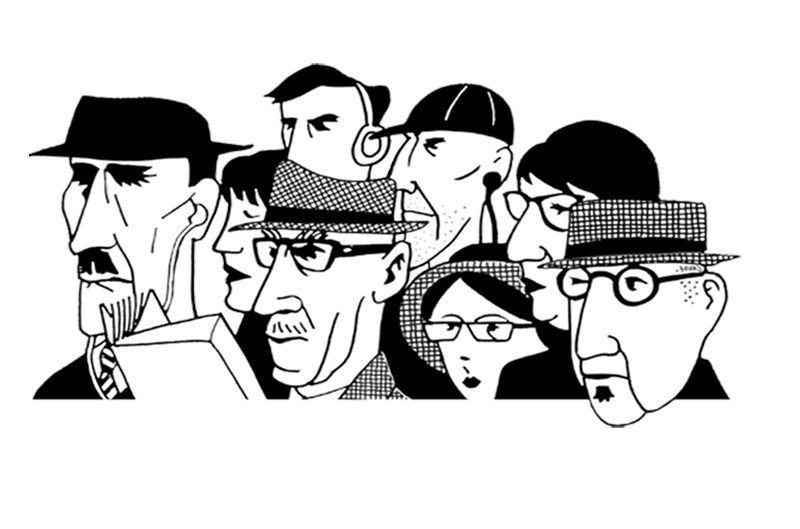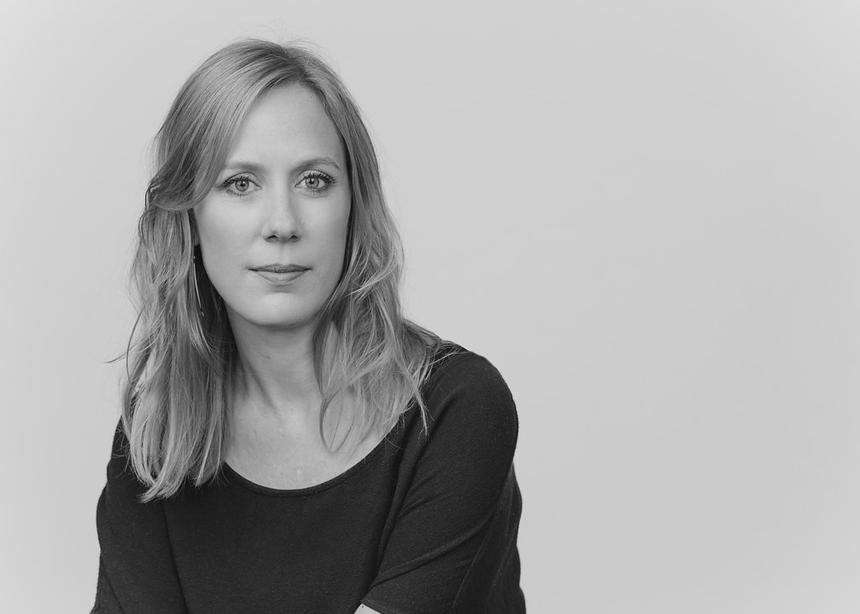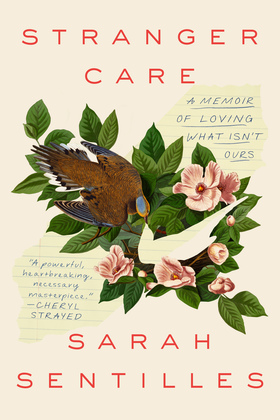Draw Your Weapons
Sarah Sentilles
THIS TITLE IS NO LONGER AVAILABLE IN PAPERBACK BUT CAN STILL BE PURCHASED AS AN EBOOK
‘How to live in the face of so much suffering? What difference can one person make in this beautiful, imperfect, and imperilled world?’
In Draw Your Weapons, Sarah Sentilles offers an impassioned defence of life lived by peace and principle. Through a dazzling combination of memoir, history, reporting, visual culture, literature and theology, Sentilles tells the true stories of a conscientious objector during World War II and a former prison guard at Abu Ghraib. In the process she challenges conventional thinking about how violence is waged, witnessed and resisted.
Draw Your Weapons stirs and confronts, disturbs and illuminates. A single book might not change the world, but this utterly original meditation on art and war might transform the way you see the world—and that makes all the difference.
Sarah Sentilles digs into our world’s most brutal and profound instincts with critic and writer Maria Tumarkin at the Wheeler Centre.
INTERVIEWS
ABC Compass
ABC Radio National: Big Ideas
ABR, Open Page
Artshub
Signature interview
Signature comic
Nine to Noon Radio
ABC Radio, Conversations
ABC Radio Adelaide, Afternoons (live from the Adelaide Festival)
ABC Radio, Evenings with Lindy Burns & David Astle (live from the Bendigo Writers Festival) (1.03.20)
ABC Radio, Night Life
ABC Late Night Live
ABC Radio National, Breakfast
Saturday Paper
REVIEWS
Inside Story
Lithub
New York Times
Rumpus
Jezebel
Sydney Morning Herald
andDraw Your Weapons
‘Two very different photographs send the author on a quest to understand the relationship between compassion and violence. The result is the conversation that I wish we, as a nation, could have, not just to bridge the gap between veterans and civilians, or to find some common ground between conservatives and liberals, but to lay out a realistic plan for our continued survival.’
‘A unique and necessary book that makes a passionate, thought-stoking argument.’
‘Now more than ever, the world needs a book like Draw Your Weapons. With mastery, urgency and great courage, Sarah Sentilles investigates the histories of art, violence, war and human survival. In her haunting and absorbing narrative, the act of storytelling itself becomes a matter of life and death.’
‘Draw Your Weapons is as much about peace as it is about war; it is as much about life as it is about death…You will be riveted, educated, implicated, and changed by this book.’
‘A beautiful, harrowing, and moving collage that portrays the making of art as a powerful response to making war. Every reader will feel profoundly changed by it.’
‘Fearless, stirring, rhythmic, this book pulses with energy and is full of insights, dark yet ultimately hopeful.’
‘A beautiful, haunting book so original that it is a genre unto itself—a poem, a sermon, a polemic, a memoir, a narrative. I won’t be able to think of our era of constant conflict without recalling Sentilles’s lessons, her imagery, and her prophetic voice.’
‘Draw Your Weapons works as a highly original corrective to this impulse towards inaction…Sentilles’ approach is a refreshing and instructive take on this era of perennial warfare.’
‘Sentilles delivers a learned, poetic, and interdisciplinary assessment of the ways in which the photographic image has been abused and weaponised, while also suggesting ways in which the arts can help serve as an antidote to this problem.’
‘Sentilles, a would-be priest who dropped out of divinity school to pursue the study of art history searches for the role of art in an age of perennial warfare. She deftly and gently weaves together disparate topics—photography, Japanese internment, Abu Ghraib, sainthood, to name a few—so that I felt like an awakened genius at the close of each section.’
‘In Draw Your Weapons, American critical theorist Sarah Sentilles assembles the case for art as a weapon against weapons. It’s a premise that may sound painfully idealistic, but to dismiss the book on that basis is to miss a thoughtful conversation with an author whose eyes are wide open…In a culture where the arts are too often dismissed as frivolous, Sentilles’s work offers a robust and necessary retort, an important reminder that “the world is made and can be unmade. Remade”.’
‘Sentilles has examined these issues so closely, I am inescapably interested in her opinions. At the same time I also appreciate her answer to a student, who, reacting to one of the many photographs of war and violence that Sentilles shows her classes, asked, “But what are we supposed to do?” Sentilles responded: “I don’t know.”’
‘Though Sontag’s words—“No one…Not even pacifists”—fundamentally shape the book, and it proves nothing if not how pervasive and intractable the culture of war is, Draw Your Weapons left me feeling rather like Virginia Woolf. It is an impossibly heavy book to read, as even the beautiful in it is tainted by its root cause, but it is heavy because it is challenging and brilliant and fierce. Readers will carry that weight and be better for it.’
‘Sarah Sentilles’ Draw Your Weapons is one of the most erudite, original, and thought-provoking books I have ever read. A philosophical and moral meditation on pain, torture, and the violence of war—part memoir, part history, even a kind of secular prayer—this book asks us to look at terrible human darkness while also celebrating the ways in which love, connectedness, and the making of art nourish and redeem the human spirit.’
‘A masterpiece of understatement, allusion and wily composition.’
‘A sincere and intelligent read.’
‘A liminal story that is all at once a gritty exploration of Mexican gang life and a poetic examination of the human spirit.’
‘A formally elegant and intellectually rigorous argument for peace…Sentilles’ book inspires us to be more than we are, to live beyond our historical moment. Not a call to arms so much as a call to the writers’ pen.’
‘A complex and original reaction to violence, warfare, and conscientious objection: I’m still thinking about it, still dipping back into it.’
‘Sentilles mounts her argument with an accumulation of detail, employing metaphor rather than polemic. Her examination of drone warfare is especially powerful.’
‘Sentilles’s book is a challenging read full of snippets thoughts and reflections. It cuts between time place and character. Part memoir part exploration it avoids neatly-cut explanations or definitive conclusions it shows, suggests and probes…In an age consumed with its own reflection this is a timely work and I highly recommend it.’
‘Poetic and furious.’
‘These are weighty subjects but the author’s touch is so light that I was barely conscious of reading…Sentilles does not belabour her points but her silences are impactful.’
‘Had I not been asked to review Sarah Sentilles’s Draw Your Weapons for these pages, I wouldn’t have read it; I would have skimmed the blurb and scoffed at its idealism. “What difference can one person make in this beautiful, imperfect, and imperilled world?” Sentilles asks. This of all years, I am mightily thankful I was challenged to confront that question, and form my own answer. Her book is a vital antidote to political despondency and a testament to the transformative power of art.’
‘An intriguing meditation on violence, imagery and language.’
‘An unflinching yet poetic interrogation of the roles that imagery, language and everyday behaviours play in abetting oppression, violence and injustice, Draw Your Weapons confirms that a life of peace and principle is a human possibility.’
‘Sentilles combines fragments of narrative, memoir and journalism to plot a peripatetic path through contemporary debates about war and suffering. She considers whether it is possible for art- and image-making to re-engage viewers who feel overwhelmed or apathetic, while restoring dignity to those affected by conflict. In a book with no images, Sentilles interrogates many photographic works that depict violence and suffering, to grapple with the question: do we look or look away?…Sentilles argues that the suffering doesn’t go away just because we don’t look. The really important question is not whether we look, but what we do with what we see.’
‘Draw Your Weapons by Sarah Sentilles did something I hadn’t experienced before. Laying ideas and snippets and images side by side, she grappled with the biggest questions – war, peace, torture, religion, art – but left space for the reader to join the dots. I could feel my neural pathways stagger under the weight, but eventually expand.’
‘A book to dog-ear, write all over, bookmark, re-read and remember…Draw Your Weapons offered something unlike anything I’d ever read before, forever changing my interactions with image, language and the world.’






